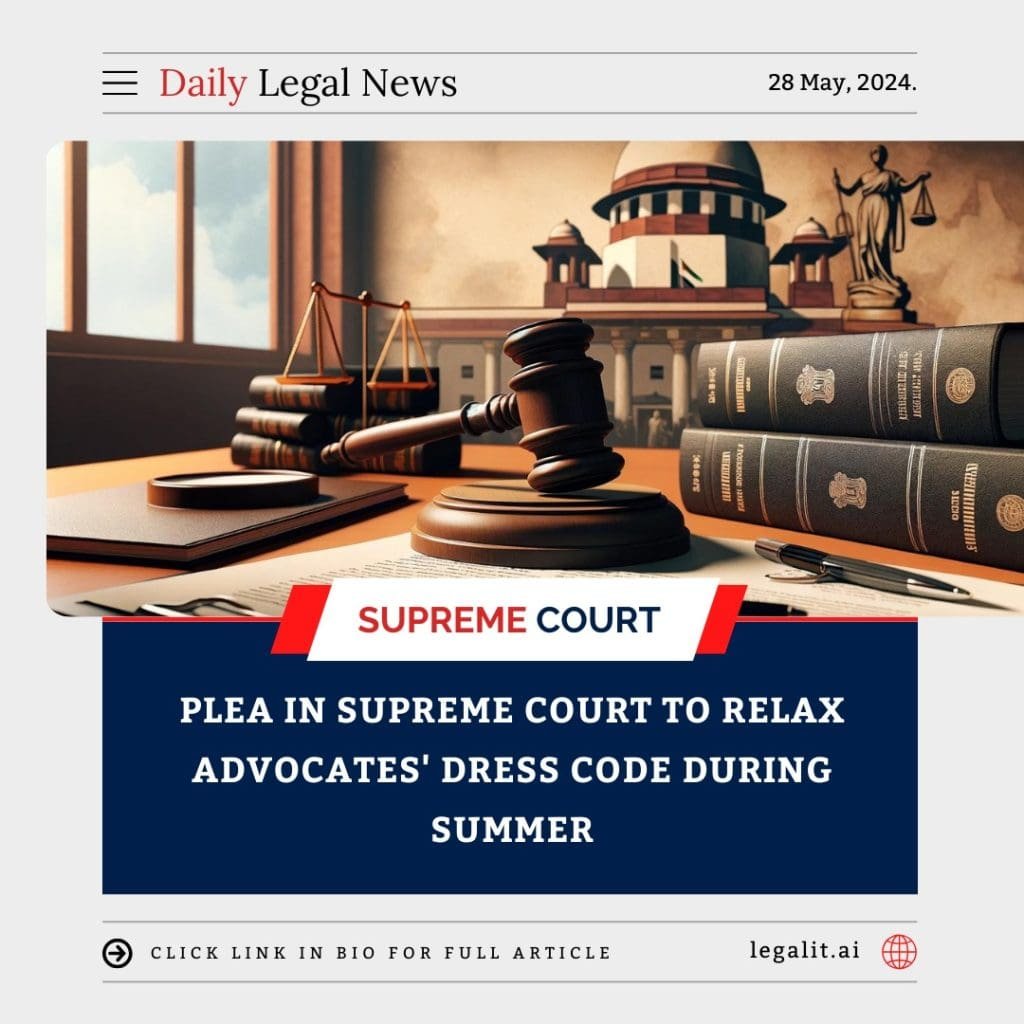
A plea has been filed in the Supreme Court of India seeking an exemption for lawyers from wearing black coats and gowns during the summer months. The petition, filed by Advocate Shailendra Mani Tripathi, argues that the mandatory dress code is unsuitable for the hot and humid conditions prevalent in many parts of India, making it uncomfortable and impractical for lawyers to adhere to these requirements during the peak summer season.
Key Arguments in the Plea
- Health Concerns: The plea highlights the health risks associated with wearing heavy black coats in high temperatures, which can lead to heat exhaustion and other heat-related illnesses.
- Economic Burden: Maintaining the prescribed attire, including regular dry cleaning due to excessive sweating, imposes an additional financial burden on lawyers.
- International Practices: The petitioner cited examples from other countries, such as the United Kingdom, where dress codes for lawyers are relaxed during the summer months to accommodate the climate.
- Productivity and Comfort: The plea emphasizes that the uncomfortable attire negatively impacts lawyers’ productivity and can lead to frustration and irritation, affecting their performance in court.
Legal Framework
The dress code for advocates in India is governed by the Bar Council of India Rules under the Advocates Act, 1961. These rules mandate that advocates wear a black coat or gown along with a white shirt and neckband when appearing in court. The plea seeks a direction for state bar councils to amend these rules to provide flexibility based on seasonal variations in temperature and humidity across different states.
Potential Impact
If the Supreme Court grants the plea, it could lead to a significant change in the dress code regulations for advocates, ensuring their comfort and health during the summer months while maintaining professional decorum. This move could also set a precedent for other professional dress codes to be reviewed and adjusted according to climatic conditions.